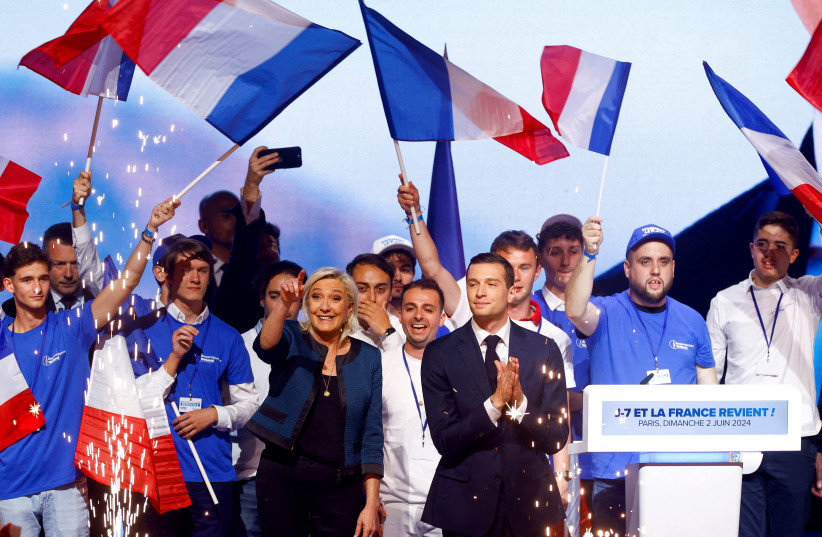Following the success of the right-wing National Rally Party in Sunday’s first round of French parliamentary elections, Grande Synagogue of Paris Chief Rabbi Moshe Sebbag cast doubt on the future of Jews in France and advocated for youth to immigrate to Israel or other countries.
“It is clear today that there is no future for Jews in France,” Sebbag told The Jerusalem Post on Monday. “I tell everyone who is young to go to Israel or a more secure country.”
In previous conversations with the Post, Sebbag had struck a more cautiously optimistic tone, hopeful that French Jewry would continue despite his worries about antisemitism and a changing society.
France was facing an identity and integration crisis, Sebbag explained. Post-World War II Jewish immigrants had come to France, endured housing their families in one-room apartments while imbibing French culture. They learned the language, the “spirit” of the society, and French cuisine.
“Every country has its history, and its history is part of its identity. The moment you feel part of a country’s history, it doesn’t become another country’s history,” said Sebbag. “After generations, the French Jews are very French and feel very French.”
Immigrants from other countries had come to France seeking a better life, but some had not integrated as well as the Jews, said the rabbi. France is a secular society, in which religious items are not worn at public school or by employees of a hospital.

“There is freedom of religion, but is not for display in state spaces,” said Sebbag.
Yet many Muslims have refused to comply with such aspects of French society, with more head scarfs worn in state spaces.
How has French society responded to local issues?
Different segments of France have responded differently to the problems of mass immigration and failures of integration. According to Sebbag, on the one hand, there is a fear of losing French culture and a desire to throttle immigration; on the other hand, those with a humanistic ideological bent want to help the immigrants with exorbitant social benefits and to fight discrimination against them. This requires raising taxes for the rich and raising the age for pension benefits.
Sebbag said that many places with enclaves of unintegrated immigrants have seen the far Right grow in strength. National Rally’s founder Jean-Marie Le Pen was sympathetic to the Nazis and accused of antisemitism. Sebbag said that his daughter Marine Le Pen had for 15 years tried to distance the party from its founder and focus on protecting French identity and culture.
Many on the Left had offered justification for the October 7 Massacre, while the Right had offered support for Israel’s ability to defend itself. The Left had also facilitated and embraced Pro-Palestinian protests and activism, which coincided with a dramatic rise in antisemitism.
Sebbag accused the left-wing New Popular Front Party of engaging in manipulation by naming its coalition after French Jewish statesman Leon Blum’s Popular Front, which had fought for workers' rights and against antisemitism. The Left coalition has so far claimed second place in the elections, above President Emmanuel Macron’s centrist Ensemble alliance.
Jewish groups have called for French Jews to vote for the Center, which has been supportive of Israel, but under their leaders, the problem of antisemitism has proliferated.
“Many Ashkenazi Jewish families here since before World War II couldn’t think to vote for National Rally, yet the Left has been antisemitic in recent times,” said Sebbag. “The Jews are in the middle because they don’t know who hates them more.”
